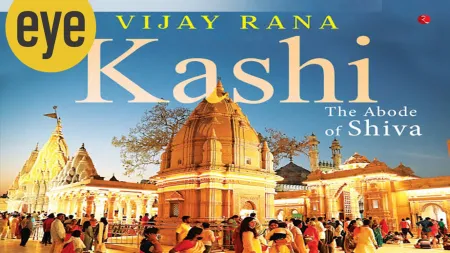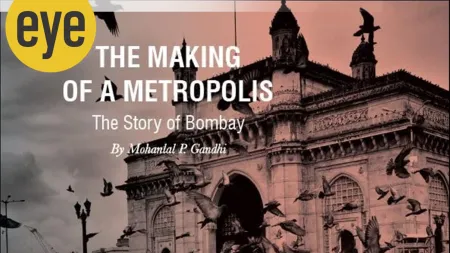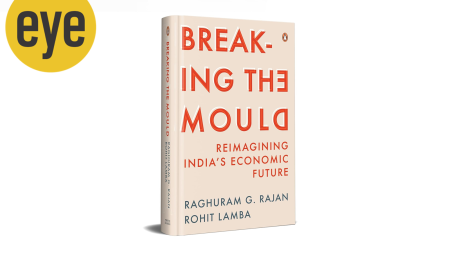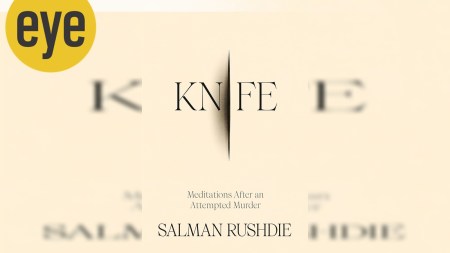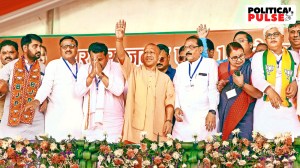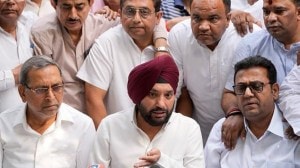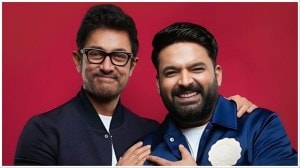- India
- International
The Kremlin is offering Russians free vaccines, but will they take them?
Distrust of the government is so widespread that 59 percent of Russians say they have no intention of getting country’s coronavirus vaccine.
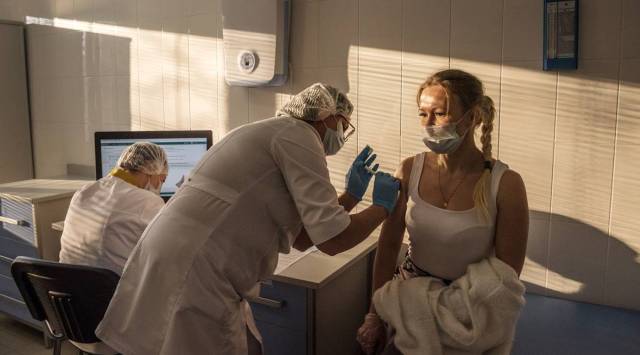 Lyudmila Soboleva, a doctor, is inoculated with Russia's Sputnik V vaccine for COVID-19, in Moscow (Sergey Ponomarev/The New York Times)
Lyudmila Soboleva, a doctor, is inoculated with Russia's Sputnik V vaccine for COVID-19, in Moscow (Sergey Ponomarev/The New York Times)Written by Anton Troianovski
Alexei Zakharov, a Moscow economics professor, got the Russian coronavirus vaccine injected into his upper arm over the weekend.
Getting the shot was an easy decision, he said — not because the Russian government said it was safe, but because scores of Russians have shared their experience with it on social media.
“I trust the grassroots collection of information far more, of course, than what the state says, at least before the testing results are available and published in a medical journal,” Zakharov, 44, said in a telephone interview Monday, already clear of a mild fever — a side-effect of the vaccine. “There’s no safe, no-risk option here. Either you get the vaccine or you risk getting sick.”
Russia made its coronavirus vaccine available for free in recent days to teachers, medical workers and social-service employees younger than 61 in Moscow. But even more than in the West, a lack of trust is hobbling Russia’s rollout of a vaccine: The country’s scientists may well have made great strides in battling the pandemic, but many Russians are not ready to believe it.

That distrust looms large as Russia races to roll out the vaccine while facing the fiercest onslaught of the pandemic yet, with some 500 deaths per day.
The government, in part, has itself to blame. President Vladimir Putin proclaimed in August that Russia had become the first country in the world to approve a vaccine for the novel coronavirus, to great fanfare in the state media, even though it had not been tested in a large-scale medical trial. Putin said the vaccine worked “effectively enough,” given the health emergency, but critics charged that he was dangerously short-circuiting the long-established process for developing safe vaccines.
In research afterward, an independent polling institute, the Levada Center, found that the first-in-the-world bombast may have only deepened Russians’ suspicions: in October, 59% of respondents said they would not get a coronavirus vaccine, even if it was voluntary and free of charge.
Denis Volkov, Levada’s deputy director, said the typical response on the matter in focus groups was: “On the one hand, we are happy that we are first. But we won’t get it ourselves — let it go through the trials.”
“I’m not planning on getting vaccinated because half the people say it’s not a particularly good idea,” Valery Patrin, a 21-year-old jazz orchestra musician, said in an interview in Moscow on Monday. “There’s no way the vaccine will be tested normally.”
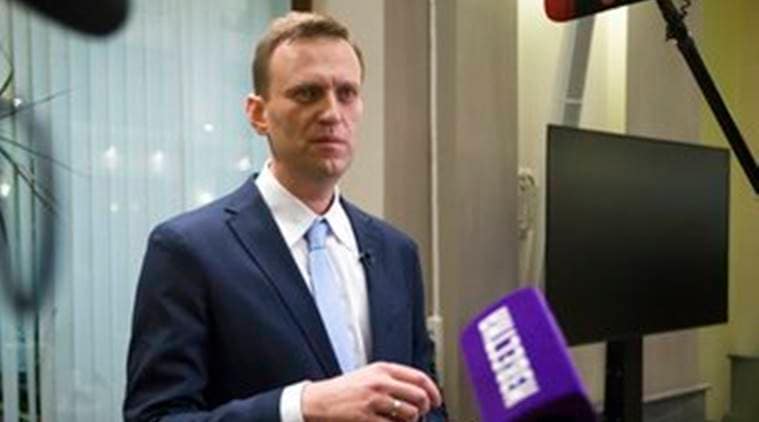 Alexei Navalny
Alexei Navalny
Alexei Navalny, the Russian opposition leader now recuperating in Germany from a nerve-agent attack, voiced doubts about the safety of the vaccine Saturday, calling on top government officials to get vaccinated themselves “under the eye of doctors and journalists.” While many members of the Russian elite — from top business executives and governors to the editor of the Kremlin’s RT television network — have said they have already gotten the vaccine, Putin has not, although he says his daughter has.
The Russian government entity that makes the vaccine being distributed says its product is 95% effective, but outside experts are skeptical of those claims. The name of the vaccine, Sputnik V, suggests the Kremlin views the vaccine as part of its competition with the West: Sputnik was the first satellite launched by the Soviet Union, in 1957, a high point for Moscow during the Cold War.
“Our Sputnik V is unpretentious and reliable, like the Kalashnikov rifle,” state television host Dmitry Kiselyov said on his show last month, describing the Russian vaccine as superior to the one co-developed by the U.S. company Pfizer.
At a state-run community clinic in the neighborhood of Golyanovo, on the outskirts of Moscow, on Monday morning, a steady stream of people who had previously signed up for a time slot online presented identification and paperwork showing they worked in education, medicine or social services. Clinic employees checked patients’ medical records for issues like allergies or having received a different vaccine in the last 30 days, then performed a quick checkup.
“I believe that before referring my patients, I need to be a pioneer,” a 38-year-old physician, Lyudmila Soboleva, said as she waited for her shot. “I need to get vaccinated myself.”
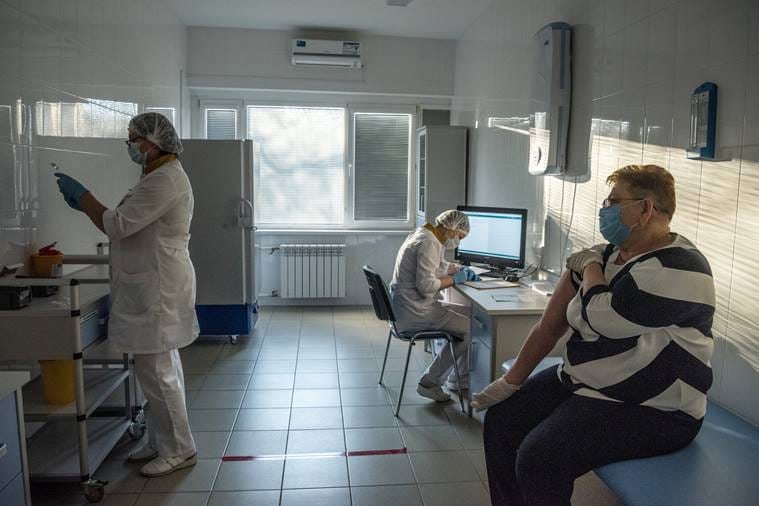 Russia is pushing ahead with its vaccination approval and administration one step faster than Western countries. (Sergey Ponomarev/The New York Times)
Russia is pushing ahead with its vaccination approval and administration one step faster than Western countries. (Sergey Ponomarev/The New York Times)
A nurse removed a vial of the vaccine, containing five doses, from a special freezer showing a temperature of minus 36 degrees Fahrenheit, and waited for it to thaw. Along with the half-milliliter shot of adenovirus-based vaccine, the patients received a stamped immunization certificate and a pamphlet explaining that nausea and fatigue were normal side effects.
Before leaving, they signed up to come back for a booster shot in three weeks.
“We have one feeling: pride,” said Maria V. Sokolova, the clinic’s head doctor. “After all, we were the first to develop a vaccine, and now we are the first in the world to begin vaccinations.”
Indeed, Russia is pushing ahead with its vaccination approval and administration one step faster than Western countries, although the rollout has been hobbled by production challenges. On Wednesday, the country’s health minister, Mikhail Murashko, said that more than 100,000 people had been vaccinated with Sputnik V, including members of the military.
But that is a fraction of the country’s population of 140 million. If Russia’s vaccination effort is to succeed, it appears likely that it will depend on positive word-of-mouth. Over the summer, polling firm Ipsos found Russians to be more skeptical of a coronavirus vaccine than the public anywhere else in the 27 countries polled.
 An inoculation with Russia’s Sputnik V vaccine for COVID-19 at a clinic in Moscow, Dec. 7, 2020. (Sergey Ponomarev/The New York Times)
An inoculation with Russia’s Sputnik V vaccine for COVID-19 at a clinic in Moscow, Dec. 7, 2020. (Sergey Ponomarev/The New York Times)
Only 27% of Russians trust the official data on the coronavirus, according to Levada. Of those who do not, about half believe the numbers are too high, and half believe the numbers are too low. The distrust, Levada’s Volkov said, is in line with Russians’ overall disenchantment with Putin after years of economic stagnation.
“There is a disbelief in official information, by default,” Volkov said.
And yet, there are also many critics of Putin who see Russian-made vaccines — three are in Phase 3 trials — as their country’s best path out of the pandemic. Some Russians participating in the trials have been sharing their antibody-test results and side effects in groups on Facebook and the Telegram messaging app.
The volunteers’ general conclusion: the Sputnik V vaccine does appear to coax the body to produce COVID-19 antibodies, mostly without serious side effects. The organizer of one Facebook group of trial volunteers, Vera Smirnova, said she often criticized the government but was disappointed that many Russian liberals reflexively rejected the vaccine because of its association with the Kremlin.
“It makes me very sad. The price of this will be human lives,” said Smirnova, who is 42 and works as a university instructor in Moscow. “I think this is a moment in which, perhaps, we need to try to trust the authorities, because in the coming months we won’t have any other option.”
xApr 28: Latest News
- 01
- 02
- 03
- 04
- 05





